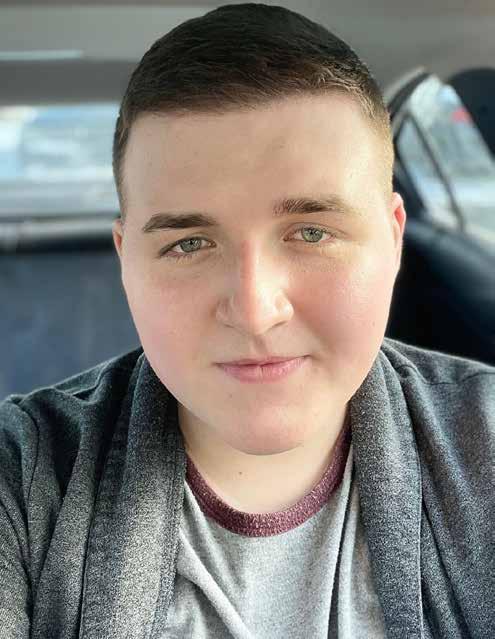
3 minute read
Zamir Fakirani on being the first openly gay USC president
Taking an intersectional approach
Zamir Fakirani on being the first openly gay USC president
By Bella Pick
ERIN GRACE GAZETTE
As the child of a refugee and an immigrant, Zamir Fakirani always knew he wanted to be involved in activism.
Today, Zamir is the first openly LGBTQ2+ University Students’ Council president-elect.
Zamir’s journey in student politics began when he joined the Social Science Students’ Council while searching for a sense of community after switching into the faculty. The following year, he became a USC councillor and is currently the SSSC president.
“It’s a privilege to be honest — I am hopeful that in the past 57 years we have had other queer leaders at the forefront of the USC,” says Zamir.
“But the fact that Western and [Huron University College, Brescia University College and King’s University College] have embraced me for who I am and have wanted to elect me because of my lived experiences and how that informs my approach to policy is something I’m forever thankful for.”
His campaign focused on advocacy, a cause near and dear to his heart as a marginalized student. He says that he aimed to provide a platform for students who might not typically be heard on the USC floor.
“Me being gay, me being brown, me being Muslim, it doesn’t qualify me for the role — but it does give me a really unique perspective that’s typically underlooked or disadvantaged,” he recounts. “The fact that I’m able to represent those perspectives, that I can achieve the highest level of student government, means the absolute world to me.”
Like many other marginalized students, Zamir notes the barriers he faced in finding representation on council.
“There are definitely barriers … for example, going to a USC meeting, not seeing folks who look like me and being forced to represent an entire community as a result of that or being expected to, even though I wasn’t necessarily able [to provide that representation],” he explains.
“Western is a pretty white school, and it is a pretty straight and cisgender school. I didn’t know if I would be accepted and I didn’t know if what I brought to the table is what [students] wanted, but I was elected twice.”
Intersectionality is a key part of breaking down those barriers, according to Zamir. His campaign focused on the concept, but he acknowledges the importance of moving forward by practising intersectionality on a daily basis.
“Something as simple as you’re going to The Spoke to eat, what you eat, is fundamentally impacted by your identity. What you choose to wear, how you choose to present yourself [are all impacted],” he says.
“And I don’t act the way I do, I don’t eat the way I do, I don’t pray the way I do, just because I’m gay. It’s also informed by the fact that I’m brown, the fact that I’m Muslim, the fact that I’m from Toronto and the fact that I’m in Social Science. So I think there’s so many day-to-day applications of intersectionality that are so easy to miss.”
That intersectionality-focused thinking excites Zamir for the future of the USC. His incoming USC executive includes four women, three people of colour and other LGBTQ2+ identifying individuals. They officially begin their tenure in May.
“It’s honestly the dream team. I’m so happy to see [that] so many diverse perspectives are going to be represented,” he says.
Zamir has one simple piece of advice for marginalized students considering getting involved in student government: run.
“It’s daunting, it’s intimidating, it’s nerve-racking, but you have a whole host of support, whether they’re queer students themselves or whether they’re allies who want to see you succeed and want to support you. So, I would say run,” he explains.
“I would say the second that idea pops into your brain, email me, text me or message me. If you have questions, I would love to support you [and] figure out pathways to student government.”






